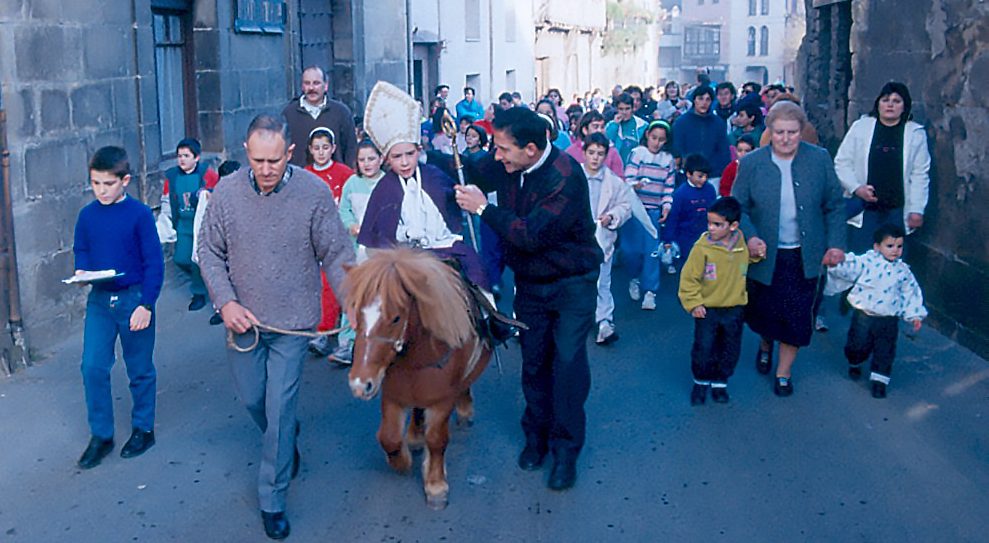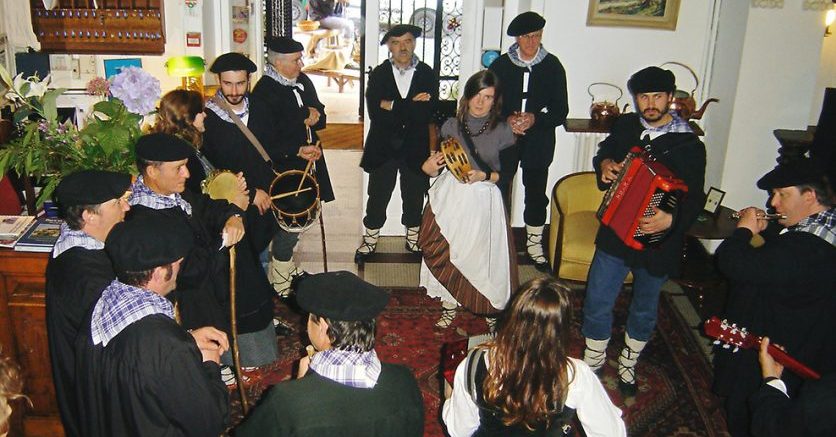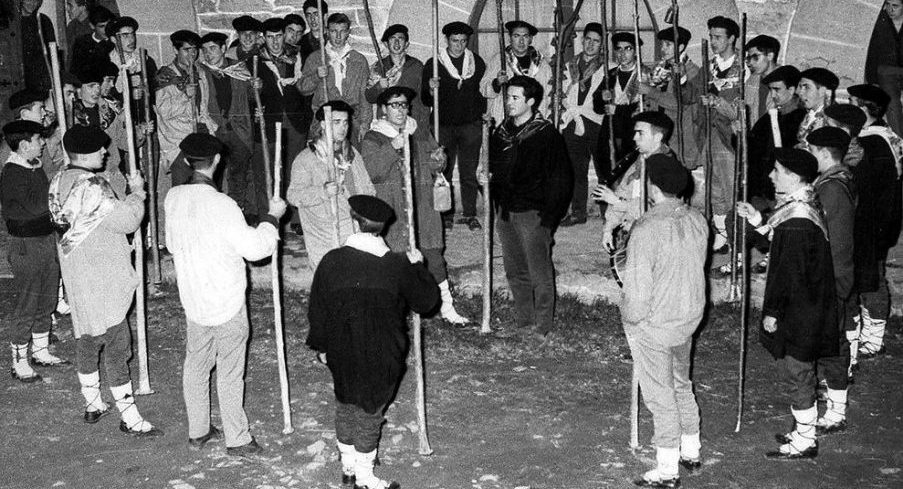Basque ethnography at a glance
Asking for alms is still a popular practice in the winter calendar across the length and breadth of the country, Christmas and Carnival being the main festive cycles celebrated during the season.
Groups of youth march the streets singing traditional songs and collecting alms at both annual festivals. Each occasion features its own repertoire, though themes might sometimes coincide, as verses are addressed to the landlord, the landlady, or other members of the household.
The purpose of the rounds has changed over time, foods being formerly customary offerings: chestnuts, walnuts, and other seasonal fruits, usually reserved for children, and products from pig slaughter, such as chorizos and black pudding, also eggs, which almsfolk enjoyed over a get-together meal. Gifts nowadays are sweets for the kids, and money for grown-ups, often destined to charitable institutions.
Christmas season collections start on St Nicholas’ Day (6 December), continue on Christmas Eve (24 December), and extend right through to the Three Wise Meen Night (5 January), each location adapting the rounds to their own habits and traditions.
For Little St Nicholas street collection a child dresses as a bishop, and accompanied by other children, takes the streets singing and begging. The practice is preserved in several locations of Álava, Navarre and Gipuzkoa.
For nine consecutive early mornings prior to Christmas Day folks sing the so-called Marijesiak on their door-to-door and neighbourhood-to-neighbourhood rounds. The novena finishes precisely on Christmas Eve, when alms are collected. In some localities wassailing occurs on a single day. The tradition is still preserved in and around Gernika, Muxika, Ea, Gautegiz Arteaga, Iurreta, and Abadiño.
Olentzero singing rounds are the most popular and widespread today, but that was not always the case. Wassailers celebrate the coming of Olentzero, a charcoal burner who descends from the mountain to announce the birth of Jesus. The mythological Christmas character might be represented by a real person or a puppet. Alms are collected even now as before in some places, not in others, and there are locations where the event ends with the burning of the puppet.
The “Dios te salve” (Hail, you!) and other religious songs called Auroras are performed either on Christmas Eve or New Year’s Eve, depending on location. Singers receive choice viands in exchange for their singing.
House-visiting wassailing On New Year’ Day (1 January) and Three Kings’ Day (6 January) was, and continues to be, a favourite with children. The chosen songs are “Urte barri barri” (New, new year) and “Erregeak datoz” (The Magi are coming), respectively. Donations are shared out and foods savoured by the group.
Strictly speaking, the cycle of Carnival comprises Fat Thursday (known as Eguen Zuri, literally ‘White Thursday’, in Basque), which encompasses alms singing in municipalities around the region of Durango, and Shrovetide, dates varying depending on Good Friday. In some places Carnival pre-celebrations kick off as soon as Christmas comes to an end on Epiphany.
In preparation for the Carnival season there are several festivities, such as St Anthony’ Day (17 January), St Sebastian’s Day (20 January), Candlemas (2 February), and St Blaise’s Day (3 February). The most extended street round in our geography, with location-specific variations, takes place on St Agatha’s Eve (4 February). In the past only men participated in the chanting and marching, often those who joined military service on the year; men and women alike, young and old, take part now.
Segundo Oar-Arteta e Igone Etxebarria – Labayru Fundazioa




